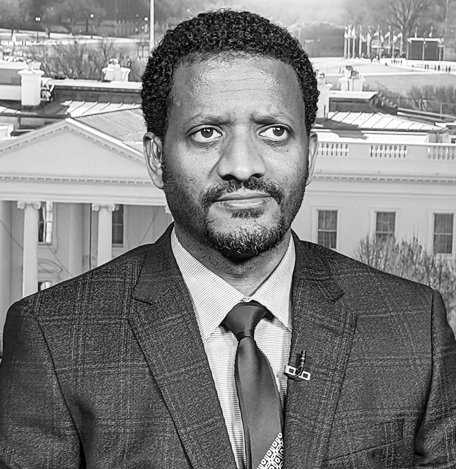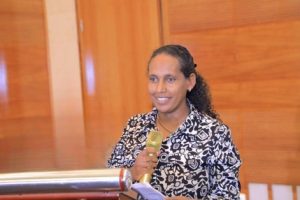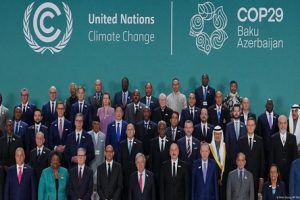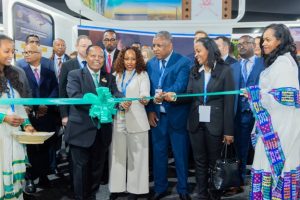
The Ethiopia Herald approached Omer Redi via email to talk about the current negotiations and other related issues on the Nile. AU and other pertinent stakeholders’ duties and responsibilities in the process are also discussed. Omer Redi is a senior journalist and Managing Director of Ifriqiyah Media and Communications – Addis Ababa-based PR firm. He is also a political commentator on issues pertaining to Ethiopia, Africa and the African Union. Omer currently resides in Virginia, USA. Excerpts:
Herald: We are recurrently witnessing Egypt’s hegemony sentiment over Nile water fair share. What is your reflection on this country’s double standard with regard to Grand Ethiopian Renaissance Dam (GERD) water filling (undertaking negotiation and taking the case to Security Council) marginalizing AU’s effort to resolve the crisis?
Omer: As it has become crystal clear in the latest round of negotiations, Egypt’s main purpose throughout the negotiations is not to reach a win-win solution for all sides, nor is it a party with a good will. It is simply trying to drag the whole process in order to deny Ethiopia the chance to finalize, fill and commission GERD. It is now an open secret that Egypt has also intended to manipulate the GERD negotiations bringing unrelated matters to the table; in effect taking matters out of scope.
By so doing, Egypt attempted to achieve its intentions of tricking Ethiopia and Sudan into negotiating the entire Nile River matters only among the three countries. This is a continuation of Egypt’s behavior emboldened by colonial era deals that made it not simply the only beneficiary of the Nile resources but also a country with a veto on development activities of the rest of co-riparian countries along the Nile basin. Hence; by deflecting the negotiations out of scope, especially in Washington, Egypt was hoping to have an agreement on the entire Nile matters that favors only its interests. This is an attempt to reverse the achievements of the Nile Basin Initiative that led to signing of the Cooperative Framework Agreement (CFA) in May 2010 which Egypt rejected automatically. When that treachery failed due to Ethiopia’s refusal to attend the last round of the Washington negotiations, Egypt turned to internationalizing the GERD issue by taking the matter to the League of Arab Nations and the UN Security Council.
Egypt keeps avoiding the African Union understanding the Pan-African organization would be a fair judge; all the co-riparian countries of the Nile are members of the AU and the AU considers all of them equals. This does not fit Egypt’s interest.
Egypt agreed to continue negotiations with Ethiopia and Sudan only after and because the UN Security Council rejected its appeal; it does not have any other options but to come back to the negotiating table with the intent of buying time to formulate its next moves. This is manifested in the series of accusations Egypt threw as part of its propaganda against Ethiopia even on the first day of the new round of negotiations.
Egypt focused on procedural matters instead of the key substances of the negotiations in its usual attempt to derail the process and keep politicizing and internationalizing an otherwise water resources sharing matter.
Herald: What, do you think, should the Africa Union do along this line?
Omer: This is an African matter through all the co-riparian states. In addition, GERD is one of the major infrastructure projects across Africa recognized by the AU through its Program for Infrastructure Development in Africa (PIDA). The AU has recognized GERD as a project with development benefits for many countries in addition to Ethiopia. It is also recognized as a PIDA project because it promotes regional and sub-regional development, cooperation and integration among African countries as envisioned by AU’s Agenda 2063.
In light of this, the AU should end its self-imposed moratorium, step up to and live up to its name and reputation in line with its famous motto of solving African problems through African mechanisms. The AU should take the initiative to play the role of a primary actor and a trusted party leading the negotiations to help resolve the stalemate under the auspices of a Pan-African body.
Herald: What is the best way to ensure and protect national interest?
Omer: Basically, the best way to protect and ensure national interests requires the following two elements: in the first place, to have a clear, broad and long term policy and strategy. Based on such a policy and strategy, there may be several approaches but it is argued the best way is to cooperate with partners outside Ethiopia’s borders, to build solid alliances, to invest in multilateralism and international cooperation focusing on institutions like the African Union.
Secondly, an effective implementation of a strategy to protect national interests is to have a specialized institution that constantly studies, understands and predicts trends, changes and developments around the world and in our region and propose the best policy responses and approaches.
Herald: Though Ethiopia is using less than one percent water and generating 86 percent of the Nile waters, Egypt time and again accuses Ethiopia of risking water share. How do you see this point?
Omer: Ethiopia has repeatedly stated that its use of the Nile waters for hydroelectric power generation is in line with international customs and conventions governing the use of international watercourses for non-navigational purposes. Ethiopia also adequately explained that GERD is designed and will be used in an equitable and fair manner without causing significant impact to downstream countries. Furthermore, the GERD is an epitome of Ethiopia’s aspiration to address its development needs and alleviate the excruciating poverty from which its people suffer. If Egypt keeps denying and undermining Ethiopia’s legitimate interests for fair and equitable use of the Nile water resources, Cairo is simply implying it is not interested in achieving cooperation, mutual benefits and development.
Herald: Please share with us the strengths and the involvement of the Diaspora and diplomatic corps in letting pertinent stakeholders know the matter in brief?
Omer: The Ethiopian Diaspora has been very active and articulates enough in discharging their responsibilities in promoting of Ethiopia’s interests around the world. It is an ever dramatic trend. There has not been this level of unity, enthusiasm and patriotism in support of GERD before from the Diaspora community. The level of involvement, patriotic commitment and devotion is really phenomenal. There are several initiatives and groups that led to the dominance by Ethiopian intellectuals and professionals of the mainstream international media and almost all digital (social media) platforms speaking in unison in defense of the motherland.
Herald: Sudan has been supporting Ethiopia’s stance but recently it has retreated when it comes to dam filling. What, do you think, could be the pushing factors?
Omer: Sudan is a sovereign country and an independent party to the negotiations with its own national interests first and foremost. It is not an auxiliary of any of the parties – neither of Ethiopia nor of Egypt. Hence; it is not a mere supporter of this side or that side. Accordingly, Sudan strategically pursues whatever the idea keeping its best interest.
The key element concerning Sudan is that it very well realizes the various benefits GERD entails. Access to cheaper electricity from Ethiopia combined with the regulated flow of water economically greatly saves Sudan. In addition to ending the regular floods that destroy lives and properties, the regulated flow of water has further benefits that allow the reclamation of vast arable lands in currently flooded and swampy areas along the Nile basin segment in Sudan. Hence, I believe Sudan has not made any strategic shift of any sort; neither of an alliance nor of pursuing its interests supporting the construction of GERD.
Be that as it may, there seems to be a temporary tactical shift meant to address growing meddling by Cairo in Khartoum’s internal affairs and pressure from Egypt and its allies in the Middle East and the West.
The Ethiopian Herald June 24, 2020
BY MENGISTEAB TESHOME





